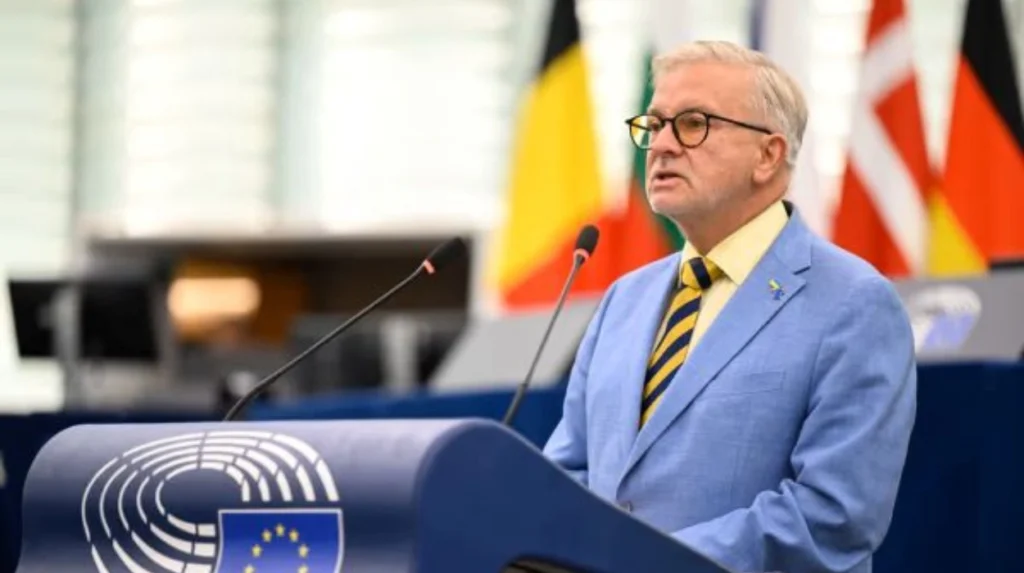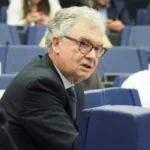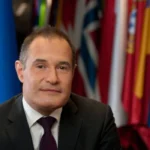The European Parliament has sent a strong signal in September 2025, calling for accelerated EU reforms and the opening of negotiation clusters to expedite Ukraine’s bid for EU membership. Against the backdrop of Russia’s ongoing war of aggression, Members of the European Parliament (MEPs) have underscored their unwavering commitment to Ukraine’s sovereignty and territorial integrity, reaffirming that Ukraine’s will must be respected in any peaceful resolution.
Accelerating the EU Accession Pathway for Ukraine
On September 9, 2025, the European Parliament adopted a comprehensive report by the Foreign Affairs Committee recommending that the European Commission open negotiation clusters quickly to advance Ukraine’s EU membership bid “at the fastest pace possible.” This was supported by a broad majority of 418 votes in favour, 135 against, and 41 abstentions, reflecting a consensus among MEPs on the urgency of supporting Ukraine’s European integration. The push to open clusters is contingent on Ukraine’s continued implementation of the EU rulebook and completion of the reforms already underway.
MEPs praised Ukraine’s extraordinary efforts in strengthening its democratic institutions during such challenging times.
“With solid reforms, Ukraine can reach the goal of joining the European Union where it belongs,”
said Michael Gahler, rapporteur for the report and Member of the European People’s Party from Germany. He highlighted that efforts to reinforce judicial and anti-corruption reforms, as well as to strengthen local and regional governance, are critical for Ukraine’s EU trajectory.
Key Areas of Focus in Ukraine’s Reform Agenda
The report specifically calls on Ukraine to intensify its work on vital reforms, stressing the importance of the rule of law, judicial integrity, transparent processes, and anti-corruption measures. MEPs emphasize that these efforts are not only prerequisites for EU accession but also fundamental for a successful economic reconstruction and increasing trust among international investors and partners.
The report draws attention to the importance of merit-based and transparent recruitment processes within Ukraine’s judicial and anti-corruption bodies, urging Kyiv to maintain the reform momentum. These reforms, according to MEPs, are critical to ensuring Ukraine’s progress does not stall and that democratic gains are consolidated. The report further advocates for enhanced public administration reforms to align Ukraine’s governance standards with EU norms.
The reform clusters are structured to address different policy areas pertinent to EU membership. The first cluster, termed “Fundamentals,” includes chapters on public procurement, judiciary and fundamental rights, justice and security, financial control, and statistics. These form the bedrock of democratic functioning and economic stability and have been identified as priorities by both the European Commission and Parliament.
Political and Strategic Support Amid Ongoing Conflict
The European Parliament has reiterated the EU’s role as a steadfast strategic ally to Ukraine amidst its conflict with Russia. MEPs expressed concern about shifts in geopolitical dynamics, notably in the stance of other global powers, and stressed that the EU and its member states must increase their support for Ukraine’s sovereignty and defense posture. The report condemned Russia’s escalations in military attacks and underscored that Russia remains intent on subordinating Ukraine rather than achieving peace.
MEPs highlighted the need for security guarantees and comprehensive support to strengthen Ukraine’s armed forces and defense industry. This reflects an understanding that Ukraine’s integration into the EU is not merely a bureaucratic or reform-driven process but also deeply linked to geopolitical and security realities.
Institutional and Procedural Reforms Within the EU
The European Parliament also addressed internal EU processes that impact enlargement negotiations. MEPs recommended reforms to encourage a more efficient and transparent accession process. For example, introducing qualified majority voting in the Council of the EU on intermediate steps in accession talks, such as the opening and closing of negotiation clusters, could streamline decision-making which currently relies on unanimity and can be slowed by vetoes.
This call for procedural reform is seen as important to maintain momentum and prevent any single EU member state from unduly delaying Ukraine’s integration due to bilateral or political disagreements. The report specifically warns against using the enlargement process to settle unrelated disputes and calls for objective criteria to guide Ukraine’s accession path.
Hungary, under Prime Minister Viktor Orbán, remains a critical political hurdle, given its ability to block progress through its veto power. MEPs urge for overcoming such disruptions to uphold the principle of solidarity in furthering Ukraine’s European aspiration.
The Role of Civil Society and Parliamentary Pluralism
The report pays tribute to the role of Ukrainian civil society in driving reforms and supporting democratic resilience. It encourages Ukrainian authorities to avoid politically motivated prosecutions or sanctions against opposition representatives and calls for respect for parliamentary pluralism and constructive dialogue within the Verkhovna Rada (Ukraine’s parliament).
“We also admire the role Ukrainian civil society is playing in the reform process,”
Mr. Gahler added, highlighting how inclusive participation is essential for durable democratic development and EU integration.
The EU’s Commitment to a Just and Lasting Peace
Embedded in the Parliament’s stance is the broader objective of a just and lasting peace in Ukraine that respects its independence and territorial integrity. MEPs stress that any peaceful solution must be driven by the will of the Ukrainian people and not externally imposed. This principle guides their call for continuing support for Ukraine’s reform and defense efforts simultaneously.
The European Commission, which provides the technical assessment of Ukraine’s readiness, has been urged to proceed with opening negotiation clusters rapidly, supporting the Parliament’s recommendations and affirming the EU’s commitment to Ukraine’s European future.
The European Parliament’s decision to prioritize EU reforms and push for the opening of negotiation clusters marks a decisive step in supporting Ukraine’s long-term integration into the European Union. The call reinforces the EU’s solidarity with Ukraine amid ongoing conflict, emphasizing that progress in rule-of-law, judicial reforms, anti-corruption, and democratic governance are indispensable for membership.
“As Parliament, we want to send a clear signal that Ukraine belongs in the European family and that we will do everything so that it takes its rightful place as soon as possible,”
Michael Gahler affirmed, embodying the Parliament’s resolute position.
The success of Ukraine’s EU integration will depend both on Ukraine’s reform trajectory and on the political will and unity within the European Union to facilitate a transparent, efficient, and fair accession process that supports Ukraine at this pivotal moment in its history.







